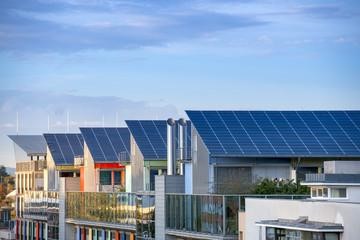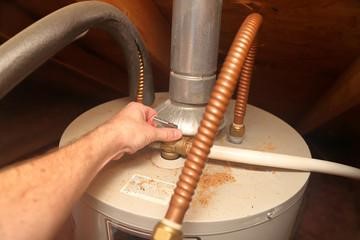Broward County Solar Pool Heaters
Broward County Solar Pool Heaters
Solar panels can be a cost-effective way to generate hot water for your home. Solar pool heaters can be used in any climate, and the fuel they use — sunshine — is free.
How They Work
Our Solar heating systems for Broward County residents include storage tanks and solar collectors. There are two kinds of solar water heating systems: active, which have circulating pumps and controls, and passive, which don’t.
Active Solar Water Heating Systems

There are two forms of active solar water heating systems:
- Direct circulation systems
Pumps circulate household water through the collectors and into the household. They work well in climates where it hardly freezes.
- Indirect circulation systems
Heat Pumps circulate a non-freezing, heat-transfer fluid through the collectors and a heat exchanger. This heats the water that then flows into the household. They are common in climates prone to freezing temperatures.
Passive Solar Water Heating Systems
Passive solar water heating systems are basically cheaper than active systems, but they’re usually not as efficient. However, passive systems can be more dependable and may last longer. There are two basic kinds of passive systems:
- Integral collector-storage passive systems
These work best in areas where temperatures hardly fall below freezing. They also work well in homes with significant daytime and evening hot-water needs.
- Thermosyphon systems
Water flows through the solar system when warm water rises as cooler water sinks. The collector must be installed below the storage tank to allow warm water to rise into the container. These systems are reliable, but contractors must be careful about the roof design due to the massive storage tank. They are typically more expensive than integral collector-storage passive systems.
Choosing a Solar Water Heater
Before you buy and install a solar water heating system, you want to do the following:
- Estimate the cost and energy efficiency of a solar water heating system
- Evaluate your location’s solar resource
- Determine the right system size
- Investigate resident codes, covenants, and regulations.
- Consider other of your pool heating options
Also understand the several components required for solar water heating systems, including the following:
- Heat exchangers for solar water heating systems
- Heat-transfer fluids for solar water heating systems
Installing and Maintaining the System

The proper installation of solar water heaters relies on a lot of factors. These factors include solar resource, climate, local building code requirements, and safety issues; hence, it’s best to have a qualified solar thermal systems contractor install your system.
After installation, properly maintaining your system will keep it running efficiently. Passive systems don’t require a lot of maintenance. For active systems, discuss the pool heater maintenance requirements with your system provider, and consult the system’s owner’s guide. Plumbing and other conventional water heating components need the same maintenance as conventional systems. Glazing may require to be cleaned in dry climates where rainwater doesn’t provide a natural rinse.
Consistent maintenance on simple systems can be as infrequent as every 3–5 years, preferably by a solar contractor. Systems with electrical components typically require a replacement part or two after 10 years.
When possible, screen contractors for installation and maintenance, ask the following questions:
- Does your firm have experience installing and maintaining solar water heating systems?
Select a company that has experience installing the type of system you want and servicing the applications you select.
- How many years of experience does your firm have with solar heating installation and maintenance?
The more experienced, the better. Request a list of past clientele who can provide references.
- Is your firm licensed or certified?
Having a legal plumber and solar contractor’s license is mandatory in some states. Contact your city and county for additional information. Check licensing with your state’s contractor licensing board. The licensing board can also tell you concerning any complaints against state-licensed contractors.
Improving Energy Efficiency
After your water heater is installed correctly and maintained, try some supplementary energy-saving strategies to assist lower your water heating bills, especially if you require a back-up system. Some energy-saving devices and systems are less costly to install with the water heater.
